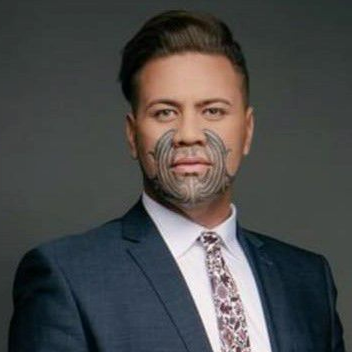John Ropiha is no angel but he says he takes responsibility for the wrong he’s done. He got caught up in a life of drugs and crime that landed him in a detention centre from where he was ultimately deported to Aotearoa.
This country was a significant change for him as his whānau had moved to Australia when he was six months old so, before he was deported, he spent 37 years in Australia.
“I left eight children back there. I left everything I've ever known, my parents, my siblings,” he said.
“I was going in and out of jail, That consumed a lot of my life too I didn't know anything else. I was stuck in a dark corner and it took for me to come back here to find the light.”
James Ede has a similar story. He spent his whole life in Australia, it is the only country he knew, and now he's getting used to the idea of living in his ancestral home. He still longs for his whānau back in Australia
“All my family, all my friends, my work, pretty much everything that I know,” Ede said.
An advocate for 501 Australian deportees is close to finishing off a hīkoi spanning the country to hear stories from whānau that will inform a case against Australian authorities.
Harrowing stories
Filipa Payne has traversed the country visiting 27 areas and Kaikohe is her final stop. She says she has spoken to about 100 people, those who were deported by the Australian government. She says the stories have been harrowing.
“Brutality is something that I will say is very common in everybody’s stories and also the disconnection of family. It's been heartbreaking going into homes and seeing the effects five years on and children still not talking to their fathers even though they live together,” she said.
“The hurt is still very raw. It's up to us as a country to start helping people to heal.”
She has spent over seven years advocating for detainees in Australia, and she says things are going from bad to worse
“This isn't kindness. This isn't a structure like a prison where you've got someone in charge telling you what to do. This is a man-on-man, dog-eat-dog facility that was designed to break people.”
But these descendants of Ngāpuhi want to do better, and advocate themselves for people who have similar experiences
“We're looking for a house at the moment. Maybe a seven or eight bedrooms whare for five or six people, wahine/tāne it doesn't matter and just giving them an opportunity.”
Payne is meeting the 501 deportees as part of a class action lawsuit against the Australian government.
And she's off to Wellington soon to try to get support from politicians - and solutions.

